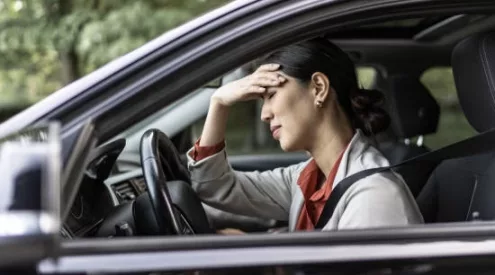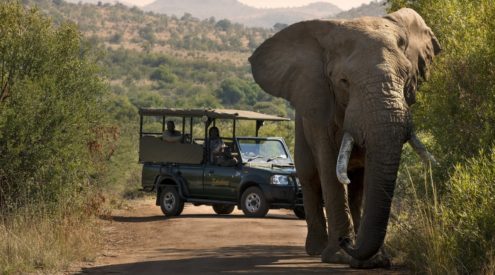As South African confidence to move about is slowly growing, travlling in the wake of a pandemic is much different to how it was before. There are many things we need to remember before we leave home.
As part of the Association of Southern African Travel Agents’ (ASATA) #BackToTravel campaign, ASATA travel experts have demystified travel and shared some of their top travel tips:
- Consider local travel
Over the past few months, ASATA travel consultants have been proactive about promoting local travel.
‘We’ve found that our country is the perfect destination to explore,’ says Anneke Geldenhuys, Executive Director Harvey World Travel SA.
‘With our wide-open spaces, beautiful scenery and temperate climate, local travellers have been exploring our country in an affordable way. Safety protocols have been communicated, and we carefully vet establishments before promoting them in our network and social media channels.’
Maria Watkins, GM Tourvest Travel Services, agrees and says South Africans are looking for great local deals that are affordable and where they will feel safe. She says: ‘We have seen a spike in bush bookings. South Africans are just itching to get away.’
Watkins explains that many lodges are offering exclusive use of the lodge for families, whereby they can have exclusive use of an area and not have to interact with any other guests. They offer private game drives with the family unit only, and clients are finding this attractive.
- Don’t ignore safety protocols
Ernest Mohatle, Key Accounts Manager with Travel With Flair, warns that Level 1 doesn’t mean we are out of the woods. ‘Adhering to lockdown regulations should be a priority,’ he says.
Aadil Esack, GM Product and Marketing for XL Travel, says it’s important to practise social distancing at the airport and look out for the COVID signs. ‘No two airports are alike, so this could look a little different at each airport,’ he says.
Esack adds it’s a good idea to wear facial protection. He says: ‘Security officers at checkpoints are now using facial protection and wearing gloves. You should too. Requirements will vary, but it can’t hurt to be prepared.’
Finally, Esack suggests putting your items immediately in your bag at security checkpoints. “When removing belts, wallets, keys and phones, put them directly into your carry-on bag instead of into the bins to reduce touch-points during the screening process.”
- Do your research (or ask a travel expert)
There’s no better way to travel with peace of mind than to be prepared and know what to expect.
Rachael Penaluna, Business Manager at Sure Maritime Travel, advises researching your journey from start to finish. ‘What do I need to exit and re-enter South Africa? What is required at my transit point? What is required at my final destination? Are health certificates required to board? Will I be required to quarantine? Do I have the correct visa? A visa that was valid for travel pre-COVID may not be valid for travel post-COVID because of changes in entry requirements.’
Better still, ask a travel expert to share this research with you.
- Accept that travel insurance is non-negotiable
The situation is incredibly fluid for the moment. Countries can move from low-risk to high-risk at any time and adjust their entry requirements at very short notice. What’s more, as Penaluna explains, is that travellers often wonder what happens if they test positive or get sick at their destination. ‘Travel insurance is therefore non-negotiable,’ she says.
- Check your paperwork
Luana Visagie, Marketing Manager at Club Travel, explains that it may have been a while since you checked your travel documentation. It is imperative that you make sure your passport and any relevant visas are still valid.
Visagie adds that your travel expert can provide you with all the health questionnaires and screening forms you may require during your journey. ‘It is best to complete these prior to travel to avoid additional queuing at airports,’ she says.
- Know what to pack
Besides sunglasses and flip flops, travellers need to pack a few essential items in COVID-19 times. ‘Carry a few disposable masks with you. This will allow you to refresh your mask or grab a spare in case you misplace yours,’ says Visagie. She adds it’s also essential to carry a pen or two to avoid having to use one someone else has used. And of course, hand sanitiser should be in your hand luggage. ‘But don’t forget, it can’t be more than 100ml per container if you’re travelling internationally and not more than 1l of liquids in total.’
Watkins agrees that hand sanitiser should be at the top of your packing list. ‘Having recently travelled myself, my tip would be that you bring along your own sanitiser, This way, you will never find yourself without, and you can use a sanitiser that agrees with your skin, rather than using the various ones offered in different hotels, shops, restaurants etc. Our poor skin is taking strain.’
- Take your time
‘The best tip I can give travellers is ‘time’,’ says Penaluna. ‘Don’t be late arriving at the airport. Allow enough time to connect between flights – you never know if you will be pulled aside for screening and be slightly delayed. Make arrangements for layovers – not all airport lounges are open, so try to pre-book airport lounges if at all possible.’
- Book flexible fares
As tempting as it may seem to book the cheapest airfare, it is better to opt for a more flexible option in COVID-19 times. Penaluna says: ‘We intentionally book carriers that offer flexible or extended options on normal airfares and we investigate required documentation for boarding before and during the journey.’
- Don’t go off the grid
Although holidays offer the perfect opportunity to ‘get away from it all’, it’s not the best idea to go completely offline.
Visagie explains that because travel restrictions are changing daily, it is imperative that travellers keep in touch with their travel consultants no matter what their destination. She says: ‘It’s important to ensure that origin, transit and destination restrictions are monitored for any updates and additional requirements.’
Penaluna agrees and says that your travel consultant should be able to contact you at all times whilst you are travelling and vice versa. ‘You need to find a travel expert who is available 24/7 to assist you should you get stuck somewhere.’
- Know where to get tested
Giles Clinton, Director Sales and Marketing for Checkout Travel, says consultants can offer advice on reputable labs to get COVID tests done. He adds: ‘The consultant will also request that the clients relay any kind of delay in getting these tests back as this might affect their travel bookings.’
- Go ‘old school’ and keep printed paperwork handy
Nicolene Brand, Travel Practitioner (TPrac) Travel Liaison, explains best practice is to have your health form, boarding pass, COVID test and proof of health insurance printed and at the ready. She says: ‘Clients scan their boarding pass at security. This can be tricky on the phone, so it’s much easier to have a printed boarding pass.’
Esack agrees and says XL Travel recommends carrying a printed copy of your COVID results instead of a digital copy only as regulations may differ in different countries.
Although the travel experience might look a little different during COVID times, most South Africans can’t wait to take a well-deserved holiday. With a professional ASATA travel expert at your side, the #BackToTravel process will be as seamless as possible, and you can take to the skies with peace of mind.
Picture: Supplied















